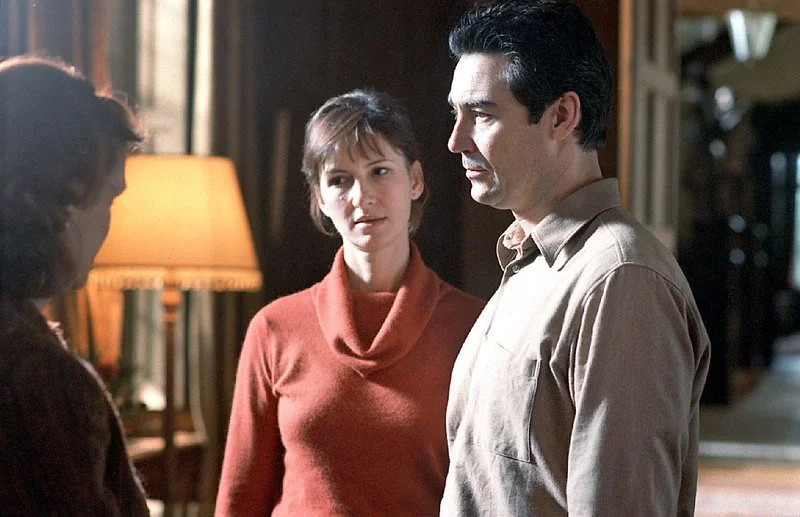A Suitable Vengeance - Inspector Lynley Review
The primal scene is a Freudian theory that posits an individual’s psychosexual development begins when, as a toddler, the individual either imagines or witnesses their parents engaged in sexual acts. It is a scenario that holds a primal allure for filmmakers, albeit with older participants. In last week’s article, I wrote about a scene in “Afloat” in which a 21-year-old accidently witnesses her divorced parents having sex. The adult child, Jasemin, has a visceral reaction of angry betrayal.
There is a similar backstory concerning the protagonist in the British series “The Inspector Lynley Mysteries”. The primal scene is outlined in the episode “A Suitable Vengeance”. Thomas Lynley (Nathaniel Parker) returns to his family estate with his fiancée in tow for an engagement dinner. His initial interactions with his mother are tense, prompting Helen (Lesley Vicarage) to compare her future husband to “a tortured adolescent”.
Lynley divulges that when he was seventeen, as his father was dying of cancer, he walked in on his mother having sex with her husband’s physician. Lynley flees to London after his father dies and fails to reconcile with his mother. The action in “A Suitable Vengeance” takes place when Lynley is nearly forty. His juvenile behavior is an important theme that runs throughout the teleplay.
Lynley’s mother Lady Asherton (Gabrielle Drake) involved in a fraught conversation with her son (Nathaniel Parker) and his betrothed (Lesley Vickarage).
Dr. Trenarrow (Peter Egan), who still is in love with Lynley’s mother, can no longer tolerate Lynley’s emotional immaturity and self-absorption. He rebukes Lynley, saying “I don’t expect you to like me, but I do expect you to act your age. What happened, happened. Get over it.” Lynley determines to reach an accord with his mother but again walks in on his mother embracing Dr. Trenarrow, and shrinks back in revulsion.
Both incidents concerning his mother’s sexuality happen when Lynley bursts into a room without knocking on a closed door. It is cinematic shorthand for demonstrating that Lynley cannot respect or delineate boundaries when it concerns immediate family members. He has trouble fathoming that they have lives independent from him. This is also apparent in his relationship with his younger brother Peter (Matthew Goode), a heroin addict. Lynley tells Havers (Sharon Small), his work partner, that the “silly boy is throwing his life away to spite me”. She reacts with appropriate skepticism.
All of this takes place in a Gothic atmosphere created by director Edward Bennett and screenwriter Valerie Windsor (adapting an Elizabeth George novel). There are numerous shots of sea waves crashing on the rocky Cornwall coast, a visual metaphor for the family tensions. Dr. Trenarrow’s hospital, set on a cliff, resembles a Victorian sanitarium and the majority of the film’s action takes place at night.
The darkness of the visual palette echoes the darkness of the main character. Lynley is shown to be narcissistic and infantile to a degree not seen in other episodes. In a pivotal scene, Lynley’s mother calls him spoiled and vain. She asserts her own agency, saying that she cannot be perfect and has more roles to play than being “his mother”. Unfortunately, the scene ends with a much-too-quick psychological turnaround from Lynley. In the space of two sentences, he reverses course and tells his mother to marry again.
There is a murder mystery to be solved here, but it is secondary to the investigation of the Lynley family dysfunction. In another similarity to “Afloat”, the older sibling reacts to family trauma by simply leaving the others behind. Peter resents his brother abandoning him to grieve over their father at the tender age of seven. Their mother is left to run a large estate on her own. She faults Lynley for prioritizing his career at the expense of family well-being. Other than the scene I referenced earlier, the filmmakers resist easy solutions to these conflicts. As in life, the unease continues long after the party ends.
Content copyright © 2025 by Angela K. Peterson. All rights reserved. This content was written by Angela K. Peterson. If you wish to use this content in any manner, you need written permission.

